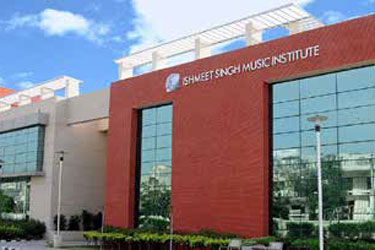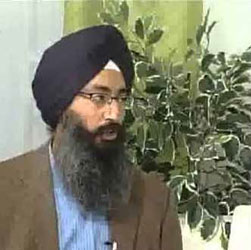Digitization Work in Khalsa College Amritsar
One of the best ways of preserving documents, paintings and other art works and artifacts is the digitization of such heritage items. This useful work is being done by certain institutions. For example, Khalsa College at Amritsar is doing a wonderful job. Khalsa College Amritsar’s Sikh Centre is also doing a wonderful job in the field of digitising of rare photographs, painting and important documents at the Sikh history research centre on the campus. As per a recent report in the tribune ‘Manuscripts and handwritten documents were digitised during the first phase. The second phase will focus on the digitisation of images related to Sikh heritage. These include photographs of heroes of the two World Wars, pictures of Gurdwaras in Pakistan clicked in the 19th century, and paintings of Sikh warriors such as Hari Singh Nalwa. The museum displaying documents of historical importance, weapons, coins and historical artefacts is also being upgraded at the centre. Established in 1930, the centre has documents available in languages such as Urdu, Persian and Sanskrit, besides over 6000 books, old newspapers and magazines. The centre was recently shifted to a separate building, which is nearing completion. “We have a rare collection of manuscripts. The project is about saving our heritage for future generations. We will begin the second phase of digitisation in 2019, most probablyin January. Currently, conservation and preservation work is going on”, said Rajinder Mohan Singh Chhina, honorary Secretary of the Khalsa College Governing Council. The college authorities have also engaged a team of experts for the preservation process. It includes processing manuscripts with Japanese technology, for which a workshop was conducted last month by experts such as Mohammad Ali, former curator, Salar Jung Museum, Hyderabad, and Sajjan Singh, Convener, Sikh Heritage Foundation, Hyderabad. “It is a treasure trove of Sikh history and culture. Hundreds of students use the documents for research,” said Principal Dr. Mehal Singh, the overall incharge of the project. “Anyone can come and peruse the documents. We have our database. However, the documents cannot be copied,” said Kuldeep Singh, incharge, Sikh history and research department, Khalsa College.’
Digital Archive Project of University of California
The University of California has also started a pioneering Punjabis Digital Archive project. As per this project they have digitized the biographical stories of such persons who migrated from Punjab to California. These stories have been extracted from their diaries, interviews and other reports. Thus, these records of the early Punjabi pioneers will prove a useful history of the Punjabis in this state and will constitute the heritage for the coming generations. The archives so digitized are the result of decades of research gathered by Ted Sibia, a former UC Davis librarian, about the early Punjabi pioneers. Ranganath also worked with the Punjabi American Heritage Society in Yuba City, California, after both groups found a huge resonance between their visions. The Punjabi American Heritage Society has been working to promote cross-cultural understanding between the Punjabi Americans and the broader community in the Sacramento Valley since they were established in 1993. The information about this project can be obtained on email: pioneeringpunjabis@ucdavis.edu and contact no. 530-754-4926.

